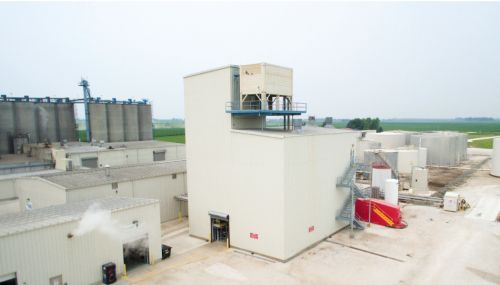All
Common Goals from the Commonwealth

MEMA’s Michael Ferrante on the issues impacting his state and the larger industry
Fossil fuel bans, biofuel blending incentives, natural gas explosions, strategic electrification initiatives, hydropower transmission lines, carbon tax proposals: this is but a short list of the many hot-ticket items making Massachusetts ground zero for some of the most heated energy market debates happening today.
Now add to the mix a pandemic that has infected over 86,000 of the state’s residents as of May 18, 2020, killing 6,000 and counting.
Oil & Energy has covered all of the aforementioned topics in past issues. But with new policy measures making regional coordination more important than ever, we decided to reach out to Massachusetts Energy Marketers Association President Michael Ferrante for a view “from the ground” on the latest news and developments of importance to heating fuel dealers in the Bay State and beyond. Our complete conversation follows.
O&E: Let’s start with perhaps the most pressing issue, the coronavirus crisis. How has it impacted heating fuel businesses in your state?
MF: In the first few weeks before the COVID-19 outbreak hit full stride, there was a great deal of industry concern primarily about whether the entire supply chain would be able to operate. Then, chasing down lots of rumors and hearsay became an everyday occurrence for me, and I’m sure for my association colleagues in other states. But once Governor Baker declared our industry “essential” to day-to-day life, the industry was greatly relieved, and it proceeded to do what it has always done admirably – keep people warm and safe.
I would also say that like so many other essential businesses, our industry had to adjust to social distancing, handwashing, and eventual face mask recommendations, but our members adjusted and adapted quickly. We did see a lessening in non-essential service calls and some reduced staffing because of the pandemic. We also know that a fair number of retailers applied for the federal Payroll Protection Program, and for those who were approved, many questions still exist about how to meet the program’s guidelines and deadlines moving forward.
Before the crisis hit, one policy issue we’d been covering in Massachusetts was Brookline’s fossil fuel ban. What is the latest on this topic?
I’m most pleased that our association moved quickly on this matter and that we were one of the first organizations to file a legal argument with the Massachusetts Attorney General’s office, seeking nullification of the bylaw. Others soon joined in opposing the bylaw, including the American Petroleum Institute, the major gas utilities and even the Massachusetts Department of Public Utilities. The AG has informed us that we may have a ruling by late June, and I’m optimistic we’ll prevail – at least with Brookline.
In addition to Brookline, which other communities have proposed similar bans?
We know that other cities and towns like Cambridge, Arlington, and Newton are moving ahead with plans to formulate similar proposals, but progress has been hampered by social distancing and stay-at-home orders. But in my view, these kinds of efforts will continue and must be opposed with vigor and stopped in our state and other states. Otherwise, these bylaws will have a significant detrimental impact on the heating oil and Bioheat® marketplace.
How do you see the coronavirus crisis affecting fossil fuel ban proposals? Are they losing momentum as heating fuel proves essential, or gaining momentum as calls increase for a green recovery?
I firmly believe the worldwide pandemic will only embolden and help activists seeking fossil fuel bans and other policies and programs to eliminate fossil fuels and reduce greenhouse gas emissions. Activists are now armed with irrefutable data demonstrating that because of lockdowns and restrictions imposed on travel and industry to halt the spread of COVID-19, there have been unprecedented reductions in air pollutants around the world. However, I still firmly believe that our industry has an incredible, fact-based message to activists and state and federal policymakers that heating oil is vital and that it’s capable — right now and in the future — of providing clean, renewable energy through biofuel blending.
The Massachusetts Alternative Portfolio Standard (APS) now recognizes biofuel-blended heating oil containing B10 or higher as renewable energy. Has this accelerated adoption of biofuel blends? What other effects have you seen?
Of all the activities I’ve worked on in my career to promote and protect the heating oil industry, I’m most proud of the Massachusetts APS program. Since the regulation was put in place two years ago, the APS program has accelerated the use of over 30 million gallons of clean, renewable biofuels statewide. There are now over 60 retailers participating in the APS program. The program has also helped our industry showcase how biofuel is and can be a crucial component in greenhouse gas reduction strategies.
September 13, 2020 marks two years since the Merrimack Valley disaster. How has the public discussion around energy and infrastructure shifted since then?
The Merrimack Valley disaster dramatically altered the image of the natural gas industry and its position with the energy sector, not only in Massachusetts but in other key heating oil states. The disaster proved beyond the shadow of a doubt that natural gas is dangerous and that it’s supported by aging, fragile and often neglected pipeline infrastructure. The disaster also shined a bright light on the exaggerated, self-important marketing messages from the gas utilities that the fuel was the ultimate energy source. Moving forward, the liquid heating fuel industry has the opportunity to fully demonstrate that it’s safe, clean, and by far, more beneficial than natural gas.
As natural gas begins to take more heat from regulators, we are also seeing a significant push from the utilities to promote strategic electrification as a means of reducing greenhouse gas emissions. The heating fuel industry has set its own emissions reductions targets in the Providence Resolution. How do you see these visions for the future competing with or complementing each other moving forward?
Advocates of strategic electrification will not be deterred in their efforts to eradicate fossil fuels and fast track the goals of the 2008 Global Warming Solutions Act in Massachusetts, and similar laws in other states. The Providence Resolution has provided the liquid heating fuel industry with a legitimate commitment and a call-to-action to stave off widespread electrification.
The resolution, along with years of well-established scientific data, shows the dramatic positive impact of biofuel. This information must be used with lawmakers, environmentalists, the media and others to clearly illustrate that we have an immediate, turnkey solution to reducing emissions. The opportunity to tell this story is before us, and we cannot waste any time in seizing that opportunity.
The Northern Pass project to bring hydropower from Canada to Massachusetts has been abandoned by New Hampshire utilities. Now, Central Maine Power’s similar New England Clean Energy Connect project faces resistance from environmentalists and other competing interests. Do you think the transmission line will eventually be completed, and how does this play into Massachusetts’ electrification discussions?
It’s very difficult for anyone to predict when, if ever, additional electricity generation can be secured from hydropower outside of Massachusetts. There are so many factors in play, including continued debate over related matters such as the Transportation Climate Initiative, carbon tax proposals, and questionable consumer related cost estimates on electric rates moving into the future. And now with every Northeast state trying to successfully implement plans for restarting their economies following the pandemic, I think it will be quite some time before lawmakers turn their attention to securing hydropower from other states. Again, this provides our industry a window to tell our clean, renewable Bioheat story.
As the head of the Massachusetts Energy Marketers Association, you have seen heating fuel dealers in your state respond to all of the above and much more. If there were one takeaway or lesson you could share with others in the heating fuel industry, what would it be?
Whether it be facing a worldwide pandemic, competition from natural gas, aggressive anti-fossil-fuel activity or efforts to electrify homes and businesses, the takeaway about the liquid heating fuel industry is that it’s incredibly resilient, responsive, dedicated to customers and tenacious when it comes to protecting a most-vital energy source.
Any advice or tips for heating fuel association leaders working at the local level?
Rather than advice or tips, I’d like to offer a message to everyone in the liquid heating fuel and biodiesel industry. I’m truly honored to be currently working with the most intelligent, dedicated, unselfish, hardworking association executives and leadership member companies I’ve ever known. Across the five other New England states and beyond, along with the team at NEFI, all of us are in perfect harmony and our goals are the same – ensure that our industry survives and prospers.
Related Posts
 Why Quality Matters in Your Biofuel Blends
Why Quality Matters in Your Biofuel Blends
Posted on June 25, 2025
 Incorporating Higher Blends of Biofuels
Incorporating Higher Blends of Biofuels
Posted on May 14, 2025
 NORA Programs at Eastern Energy Expo
NORA Programs at Eastern Energy Expo
Posted on May 13, 2025
 March Short-Term Energy Outlook
March Short-Term Energy Outlook
Posted on April 28, 2025
Enter your email to receive important news and article updates.
